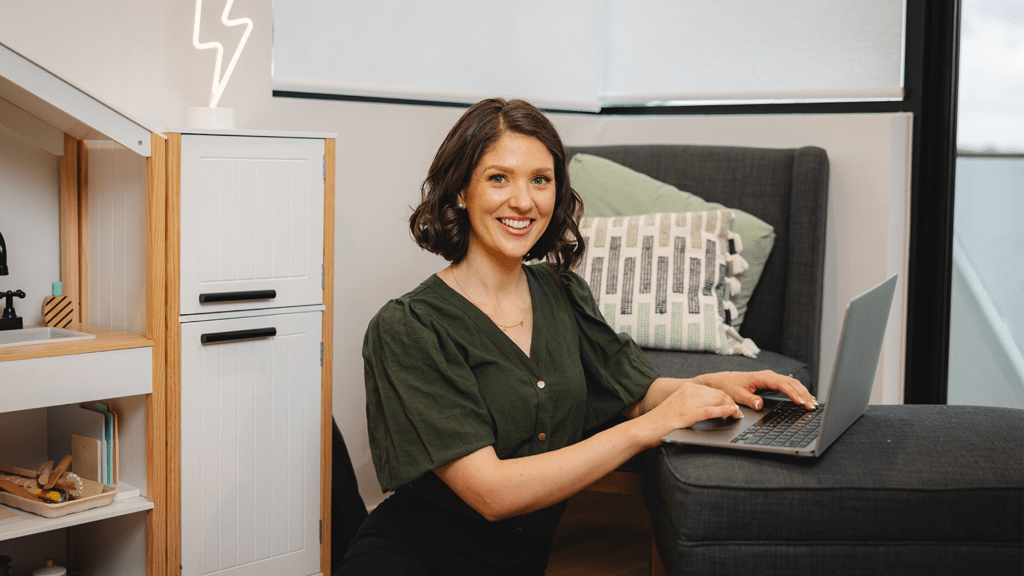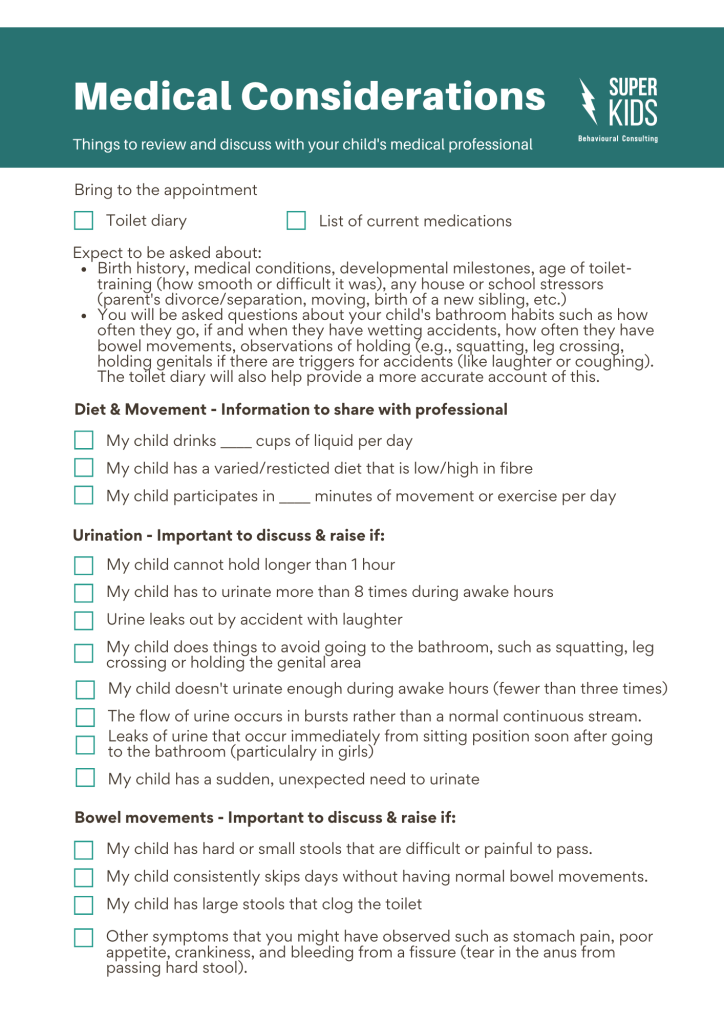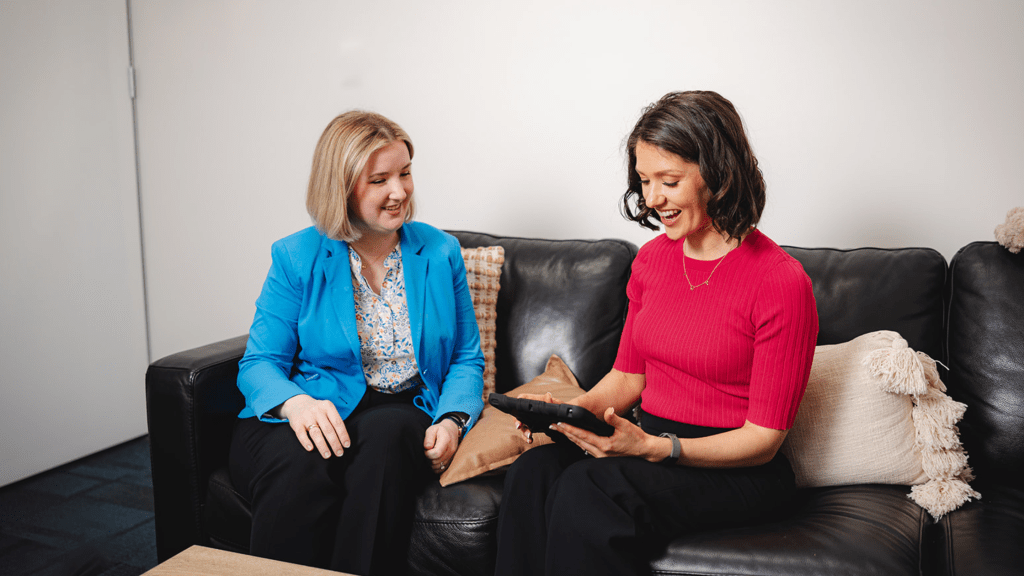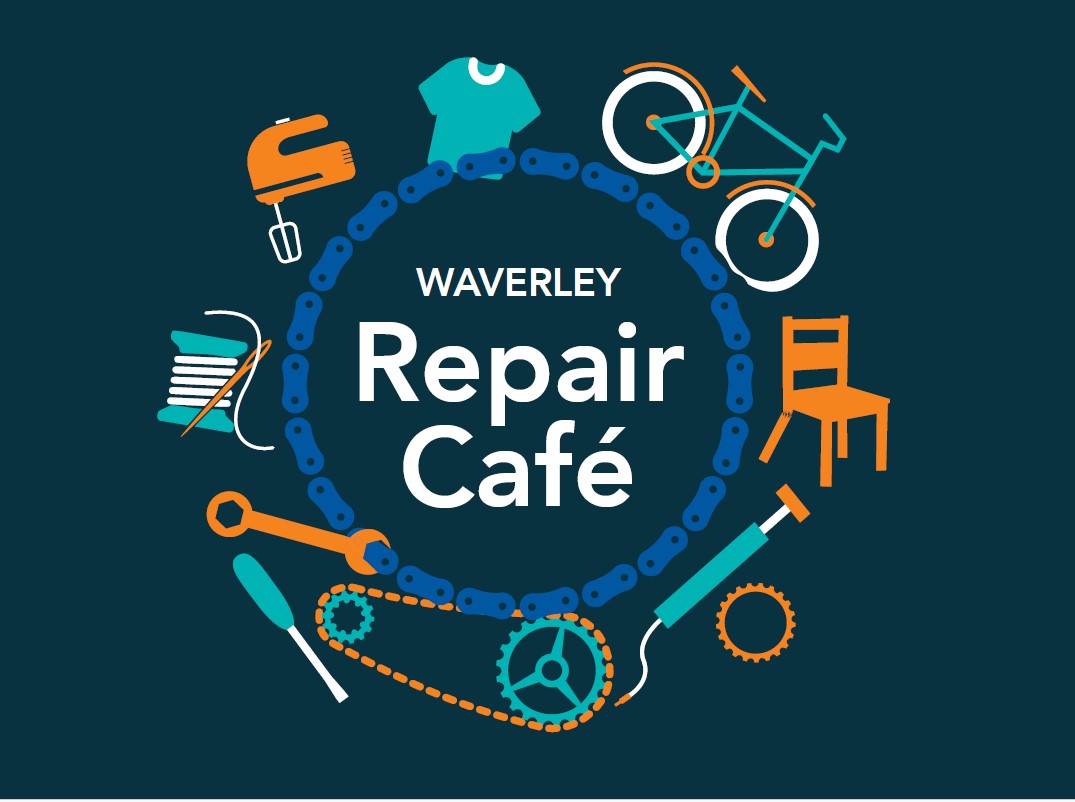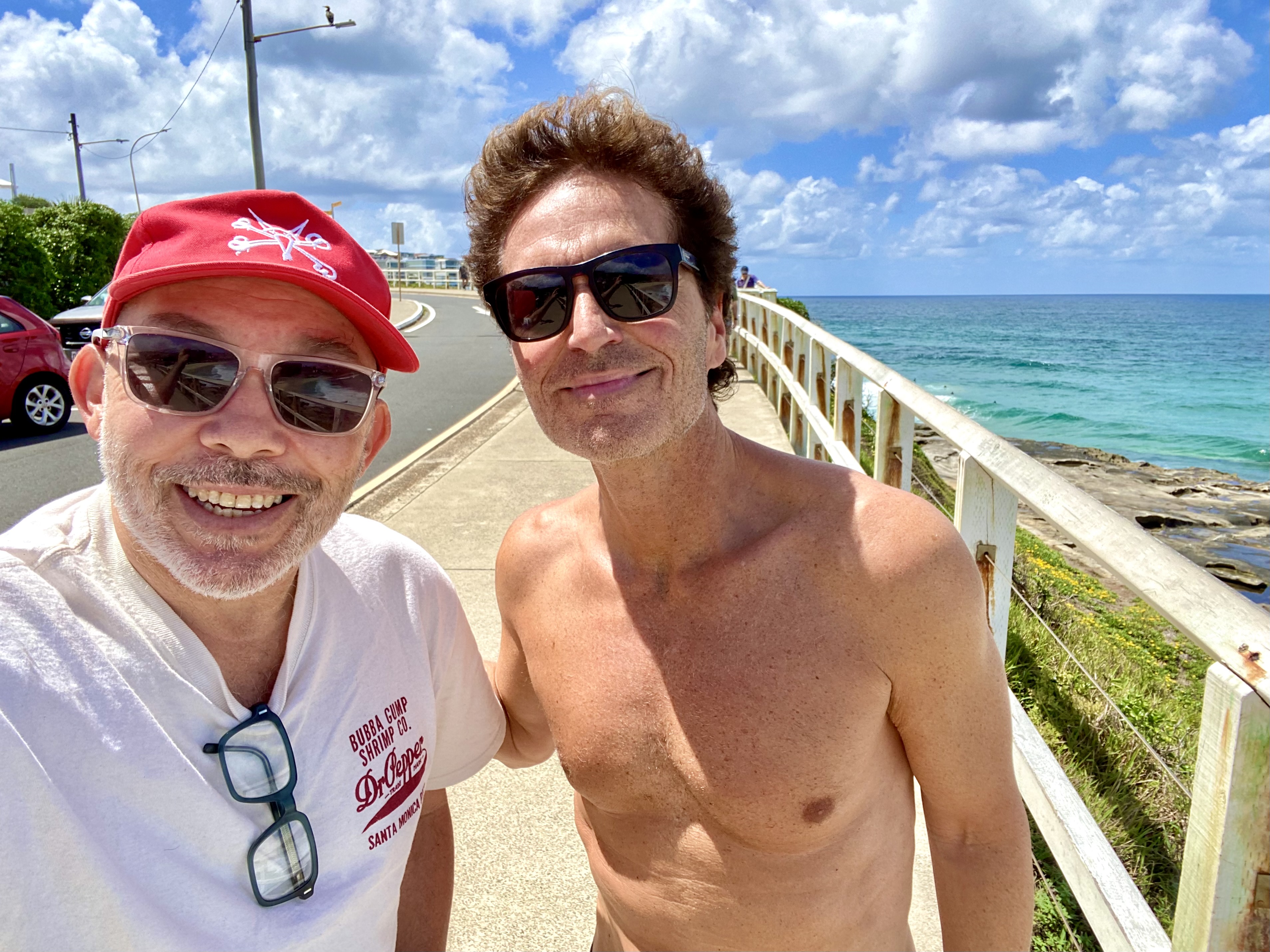
Most children achieve daytime toilet training by the age of 4. However, challenges such as daytime wetting are more common than you might think, especially in girls. Research shows that daytime wetting is twice as prevalent in girls as in boys, affecting approximately 3–4% of children aged 4–12 years. If your child continues to have accidents during the day after the age of 4, it may be time to seek professional advice.
Signs You Should Seek Medical Support
It’s essential to address underlying medical concerns before focusing on behaviour-based toilet training strategies. You should consult your GP if your child:
-
Experiences urinary incontinence, wetting or accidents more than once a month.
-
Has never achieved a consistent period of daytime dryness.
-
Is 4 years old and unable to control when or where they poo.
-
Begins having poo accidents again after being accident-free for some time.
-
Shows signs of constipation.
Medical issues can significantly impact a child’s ability to toilet train successfully. The most common medical concern that children have is constipation. Discussing any concerns with your GP is a vital first step. Consider printing out the Super Kids Medical Considerations Checklist (see the one below) and bring along a 3-day toilet diary documenting your child’s toileting habits. Be sure to include when and where they went. This information helps your GP better understand the situation, determine if there is or isn’t a medical concern and develop a tailored action plan.
Addressing Medical Concerns First
Resolving medical issues is a crucial step in supporting your child through the toilet training process. Once these concerns are managed, you can focus on building positive toileting habits. For children who have developed a fear of the toilet or bathroom—often due to past constipation or discomfort—behavioural support may be necessary.
Toilet refusal and anxiety are common among children with a history of constipation. They may avoid using the toilet, hold in their poo, or insist on wearing a nappy to poo instead. These behaviors can create additional stress for both parents and children, making professional guidance especially valuable.
When to Seek Expert Behavioral Support
If your child is struggling with toilet training, refusing to transition away from nappies (especially for poo), or experiencing ongoing toilet anxiety, professional help can make a significant difference. At Super Kids Behavioral Consulting, we offer expert toilet training support to make the process smoother and more enjoyable for you and your child.
You can book a Quick Consultation with a Super Kids toilet training expert or contact us at info@superkidsconsulting.com for more information.
Renee Collins is the Clinical Director at Super Kids Behavioural Consulting. She is a Certified Behaviour Analyst (CBA) and Board Certified Behaviour Analyst (BCBA) who has over 15 years experience supporting children and their families with toilet training and early intensive behavioural intervention.

